
Creating a grocery list is a key part of managing your budget, especially with the increasing costs in South Africa. Careful planning and smart shopping strategies can significantly reduce your monthly spending. By following a few practical tips, you can stretch your rand further without sacrificing quality or nutrition.
Key Takeaways
- Plan Wisely to Save: Focusing on basics like frozen vegetables, beans, and rice can help lower grocery costs while still providing good nutrition.
- Use Loyalty Cards and Shop Online: Make the most of loyalty programmes and online shopping to save on petrol and avoid impulse buying.
- Take Advantage of VAT-Free Items: Make full use of VAT-free essentials such as maize meal and dried beans to get the most out of your grocery budget.
About Arcadia Finance
Simplify your loan acquisition through Arcadia Finance. We offer a selection of 19 trusted lenders, each aligned with the National Credit Regulator standards of South Africa and no application fees. Experience a seamless process that’s customized to your financial needs.
Essential Items for a Cheap Grocery List in South Africa
Starting with the basics, what are the must-have essentials for every South African’s budget-friendly grocery list? Keep these items on your list to make your grocery budget go further:

Frozen Vegetables
Frozen vegetables can save you money, often costing up to 50% less than fresh produce. They last longer and are more affordable than fresh fruits and vegetables. Since frozen items can be stored for weeks or even months, you lower the risk of waste and the cost of throwing away spoiled fresh food that wasn’t used in time.

Rice
Rice is an affordable and versatile staple, making it essential for any budget-conscious household. It can be served as a side dish or as the main part of a meal, and it pairs well with various ingredients like vegetables, meats, and sauces, enabling you to create diverse dishes from different cuisines.

Maize Meal
Mielie meal is a cost-effective staple in South African cooking, known for its adaptability. It can be used for breakfast porridge or dinner sides. Whether served with stews, vegetables, or meats, it remains an affordable option for any meal.
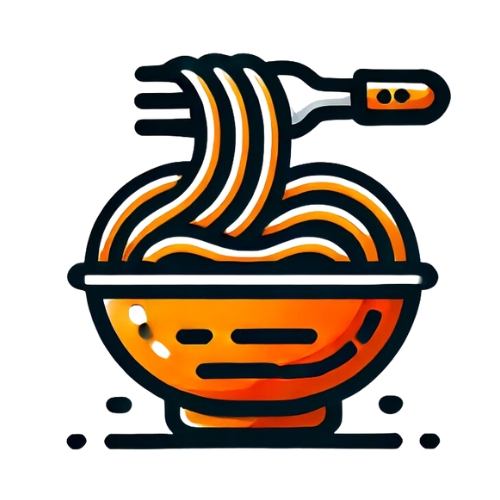
Pasta
Even when saving on groceries, you can still enjoy a bit of indulgence. Pasta dishes are quick to prepare, satisfying, and tasty. Adding pasta to your shopping can help keep your budget intact while still offering a comforting meal.
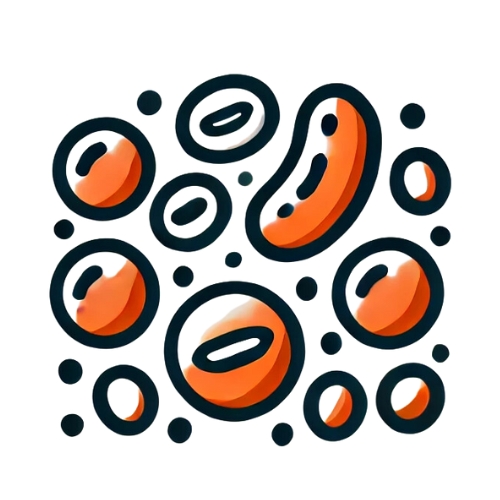
Beans and Lentils
Beans and lentils are budget-friendly, packed with protein, fibre, and essential nutrients. They are versatile and can be used in soups, stews, or salads, making them a smart choice for anyone looking to eat well without spending too much.
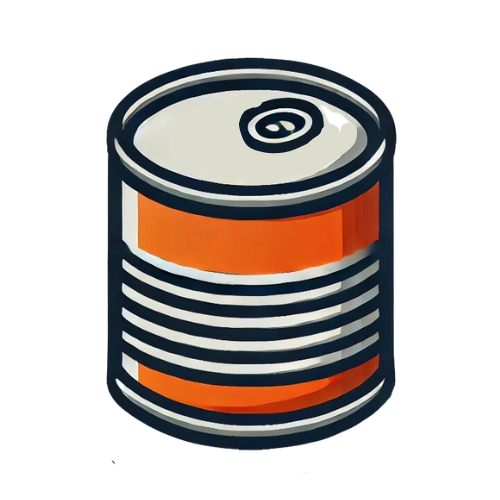
Canned Foods
Canned foods like tomatoes, beans, tuna, and vegetables offer excellent value and have a long shelf life. They’re convenient for adding taste, texture, and nutrition to your meals, making them a key part of cost-effective cooking.

Eggs
Despite recent price increases, eggs remain a reasonably priced and versatile source of protein. They can be used in a wide range of dishes, from simple breakfasts to more complex meals, making them a useful and valuable ingredient in any kitchen focused on saving money.
Maximizing your grocery list savings is just one piece of the puzzle. For a comprehensive approach to living well on less, check out our Guide to Frugal Living. It covers everything from mindful spending to creative ways of making the most out of what you already have.
What About VAT-Free Items in South Africa?
South African law exempts certain essential food items from VAT. In terms of the VAT Act, the supply of specific basic foodstuffs is subject to a zero VAT rate.
The list of VAT-free items in South Africa includes:
- Brown bread
- Maize meal
- Samp
- Mealie rice
- Dried mealies
- Rice
- Vegetables
- Fruit
- Vegetable oil
- Milk
- Dried beans
- Lentils
- Tinned pilchards/sardines
- Milk powder
- Dairy powder blends
- Cultured milk
- Brown wheaten meal
- Flour
- Eggs
- Various edible legumes and pulses
There have been growing calls to extend this list to include additional items such as bone-in chicken, beef, tinned beans, wheat flour, margarine, peanut butter, and baby food.
With our Cheap Dinner Ideas in South Africa, you can save on groceries without sacrificing great-tasting meals—leaving more room in your budget to grow your savings.
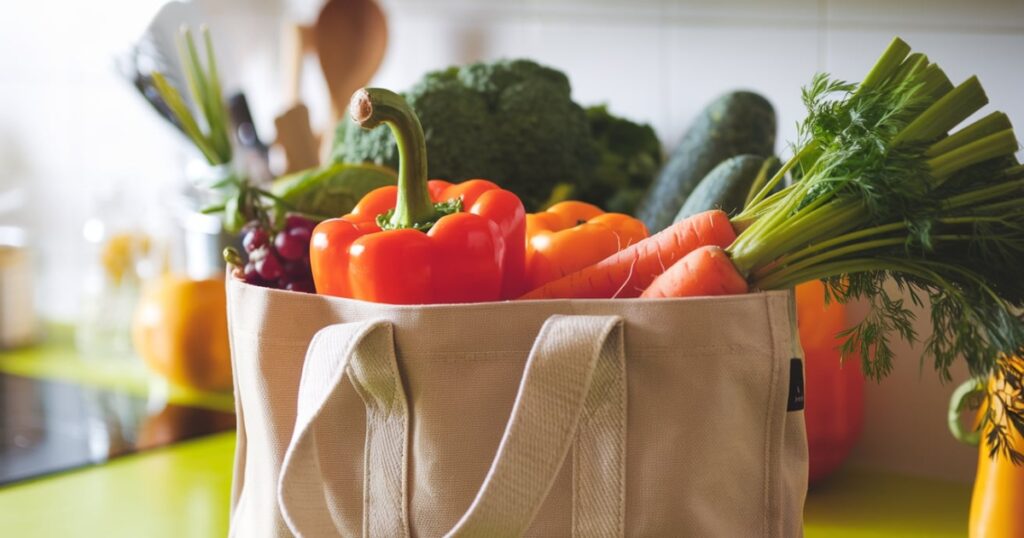
7 Smart Strategies to Save Money on Groceries in South Africa
Beyond choosing the most affordable brands or reducing consumption, here are some practical approaches to lowering your grocery bills in South Africa:
Embrace Meat-Free Mondays
When budgeting is a priority, it can be challenging to choose healthy options. However, this tip makes it easier. Including meatless meals in your routine not only improves your health and benefits the environment, but it also saves you money. The canned goods mentioned earlier? They’re ideal low-cost alternatives for these meals.
Consider Online Shopping
With the rising cost of petrol, paying for delivery on your online grocery order could be more cost-effective. Shopping online also helps reduce impulse buying, which brings us to the next tip…
Stick to Meal Plans—Buy Only What You Need
Meal planning helps you determine exactly what you need to buy. Plan your meals for the week, list the necessary ingredients, and check off what you already have. Purchase the rest, ideally online, to avoid unnecessary temptations.
Pro tip: Never shop on an empty stomach to avoid impulse buys.
Know Your Local Store’s Markdowns
Many stores reduce prices on fresh produce at certain times of the day. Find out when this happens at your local grocery store and plan your shopping around those times.
Tip: Ask different staff members for better chances of getting accurate information.
Opt for House Brands or No-Name Brands
House brands or no-name brands are often the cheapest options available. These products are usually made in-house, allowing retailers to sell them at a lower price due to reduced production costs.
Bring Your Own Bags
Did you know that most plastic bags cost at least 25 cents? Over time, this adds up. Investing in reusable grocery bags is not only environmentally friendly but also good for your wallet.
Maximise Loyalty Cards
Many South African retailers offer loyalty or rewards programmes, giving discounts or points that you can redeem on future purchases. These programmes are free to join, so make sure you have a card for every store you visit regularly. You might be surprised at how much you can save. Some of the top loyalty programmes in South Africa include:
- Checkers Xtra Savings
- Pick n Pay Smart Shopper
- Makro Rewards
- Woolworths Rewards
Write these tips down, give them a try, and stick with what works best for you. Implementing these strategies will help you save on groceries and may even influence how you manage your spending in other areas of your life.
Combine smart grocery shopping with the Best Budget Apps Available in South Africa, designed to help you monitor spending and stick to your list.
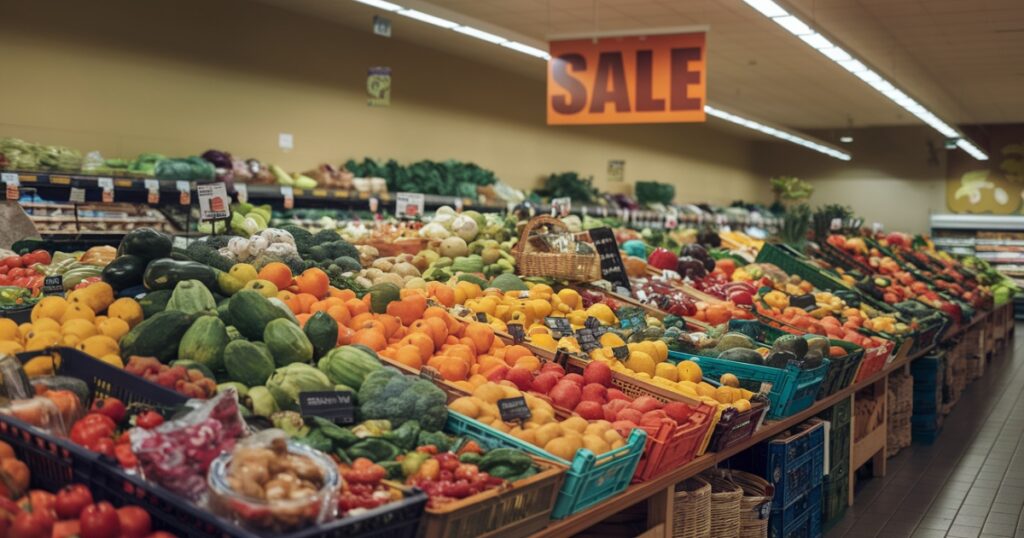
Always Check Different Types of Stores
When shopping at different types of grocery stores in South Africa, it’s useful to understand the advantages each one offers. Large supermarket chains like Pick n Pay and Checkers are ideal for buying in bulk and stocking up on essentials, while smaller independent grocers and specialty shops often offer fresher produce and unique items. Planning your shopping based on your needs will help you make the most of what each store type provides.
Having a shopping list is crucial to staying focused and avoiding impulse purchases. Organising your list by category, such as dairy, produce, and meats, can make your shopping more efficient. Timing your visits can also improve your experience—local markets are best visited early in the day for the freshest selection, while visiting larger stores mid-week typically means fewer crowds and a more pleasant shopping trip.
Don’t hesitate to ask for recommendations from vendors at local markets. They often provide valuable insights about their products and can suggest useful ways to prepare or enjoy them.
Starting with a solid grocery list is the first step to saving money, but understanding how to manage your budget effectively can multiply your savings. Read our Budgeting Tips for First-Time Savers: packed with essential strategies to help you keep track of your spending and make the most of every rand.
Common Grocery Shopping Mistakes to Avoid
- A common mistake when grocery shopping is either overbuying or underbuying, which often leads to waste or unnecessary return trips. To avoid this, stick to a detailed shopping list and plan your meals for the week to ensure you’re buying the correct quantities.
- Another frequent error is ignoring unit prices. Comparing unit prices allows you to find the best value, as larger quantities aren’t always the most cost-effective. Always check the price per kilogram or litre to make better-informed decisions.
- Missing out on sales and discounts can also lead to higher grocery bills. Look out for promotions and special offers to save money, and use loyalty cards or apps for additional discounts.
- It’s also essential to check expiry dates, particularly on perishable items. Opting for products with longer shelf lives can reduce waste and ensure you have fresh ingredients for longer.
- Navigating a store without a plan can waste time. Familiarising yourself with the store’s layout, or using available store maps, can make your shopping trip more efficient.
Conclusion
Managing your grocery expenses in South Africa doesn’t have to be overwhelming. By applying practical strategies such as creating a detailed grocery list, selecting VAT-free items, and using loyalty programmes, you can significantly cut your monthly food costs. Simple adjustments like choosing house brands, incorporating meat-free meals, and knowing when to shop for markdowns can make a noticeable difference. These tips will help you stretch your budget further, ensuring you get the best value without compromising on quality or nutrition. Start implementing these strategies today and see your savings grow.
Frequently Asked Questions
The essentials include maize meal, beans, rice, pasta, frozen vegetables, canned foods, and eggs. These versatile, nutritious, and affordable items help stretch your grocery budget.
To save money, consider strategies like meat-free Mondays, using loyalty cards, shopping online to avoid impulse purchases, opting for house brands, and knowing when your local store marks down fresh produce.
Yes, essential food items like brown bread, maize meal, rice, vegetables, and milk are VAT-free, with the VAT Act offering a zero VAT rate on these basic foodstuffs to help reduce living costs.
Frozen vegetables are up to 50% cheaper, have a longer shelf life, and retain most of their nutritional value. They’re convenient for quick, healthy meals, and help prevent waste.
Meal planning helps you buy only what you need, reducing food waste and unnecessary purchases. By planning meals ahead and sticking to your list, you can manage your grocery expenses more effectively.
Fast, uncomplicated, and trustworthy loan comparisons
At Arcadia Finance, you can compare loan offers from multiple lenders with no obligation and free of charge. Get a clear overview of your options and choose the best deal for you.
Fill out our form today to easily compare interest rates from 16 banks and find the right loan for you.


